18 National Pavilions present artists from Africa and the global diaspora at the 60th Venice Biennale, including four debutants.
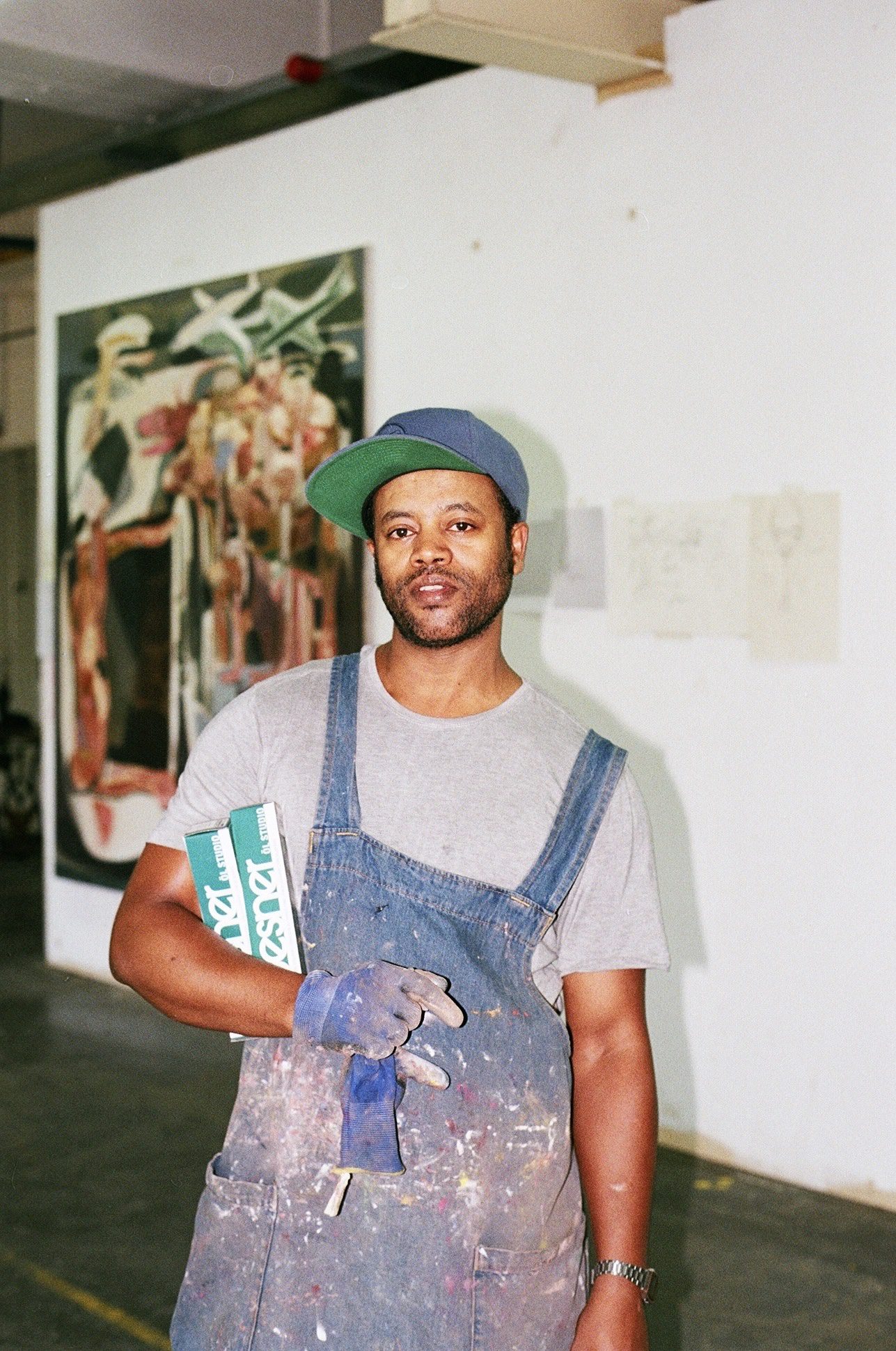
Tesfaye Urgessa representing Ethiopia's firs National Pavilion at the Venice Biennale 2024. Photo: Photography by Kameron Cooper. Courtesy Tesfaye Urgessa and Saatchi Yates
The 60th Venice Biennale, to be on view from 20 April–24 November 2024, will be curated by Adriano Pedrosa under the title Stranieri Ovunque – Foreigners Everywhere. So far, the Pavilions of Cameroon, Canada, Congo, Benin, Egypt, Ethiopia, France, Great Britain, Ivory Coast, Kenya, Nigeria, Netherlands, Portugal, Senegal, South Africa, Tanzania, Uganda and Zimbabwe have announced African and diasporic perspectives. Watch this space to be updated.

The Artisan Weavers Collective
Uganda updates its participation for this 60th edition of the Venice Biennale with the theme “Wan Acel, Alur for “We are one“. The Ugandan pavilion, led by curators Juliana Naumo Akoryo and Elizabeth Acaye Kerunen, will feature works by Artisan Weavers’ Collective, Sana Gateja, Taga Nuwagaba, Xenson Ssenkaba, Jose Hendo and Odur Ronald at Bragora Gallery, Castello 3496.
Kenya is also taking part in this essential summit of international contemporary art. Under the theme “Roots of Return“, the Kenyan pavilion will be presented under the direction of Milka Mugo and Edward Mwaura Ndekere. The exhibitors chosen to represent the country are Elkana Ong’esa, Gerald Oroo Motondi, Robin Okeyo Mbera, John Tabule Abuya Ogao, Peter Kenyanya Oendo and Charles Duke Kombo.
Ivory Coast will present artists Jems Koko Bi, François Xavier Gbré, Sadikou Oukpedjo, Franck Abd-Bakar Fanny and Marie Claire Messouma. Entitled “Blue Note”, the Ivorian pavilion will be managed by Illa Ginette Donwahi and Simon Njami at the Centro Culturale Don Orione Artigianelli – Dorsoduro 947.
Congo will shine under the theme “LITHIUM” through the artistic practice of Aimé Mpane, Eddy Kamuanga Ilunga, Eddy Ekete, Jean Katambayi Mukendi, Cédric Sungo, Steve Bandoma, Eléonore Hellio and Michel Ekeba from the Kongo Astronauts collective. Under the aegis of curators Joseph Ibongo Gilungula and Michele Gervasuti, James Putnam, the national pavilion will be located at the Gervasuti Foundation – Palazzo Canova, Calle longa Santa Caterina, Cannaregio 4998-5001.

From left to right: Kombo Chapfika, Moffat Takadiwa, Sekai Machache, Troy Makaza and Victor Nyakaur
Zimbabwe joins the ranks of African countries participating in the 60th edition of this artistic event. Under the artistic direction of Raphael Chikukwa and Fadzai Veronica Muchemwa, the Zimbabwean pavilion will feature artists Gillian Rosselli, Sekai Machache, Moffat Takadiwa, Kombo Chapfika and Troy Makaza. Their exclusive collaboration will result in an inspiring and enriching presentation that reveals the country’s artistic creativity.
Cameroon is taking part under the theme “Nemo Propheta in Patria“. Organized by curators Serge Achille Ndouma, Paul Emmanuel Loga Mahop and Sandro Orlandi Stagl, the Cameroon pavilion will be housed at the Palazzo Donà delle Rose, Fondamente Nove, 5038, and will feature artists Jean Michel Dissake, Hako Hankson, Kendji & Ollo Arts, Patrick-Joël Tatcheda Yonkeu, Guy Wouete, Angelo Accardi, Julia Bornefeld, Cesare Catania, Adélaïde Laurent-Bellue, Franco Mazzucchelli, Rex and Edna Volcan, Giorgio Tentolini, Liu Youju.

Alioune Diagne © DR
Senegal is not to be outdone in the list of African countries participating for the first time in the Venice Biennale of Contemporary Art. Led by curators Marième Ba and Massamba Mbaye, the Senegalese pavilion makes its debut at Arsenal under the theme “Bokk – Limites“. It highlights the works of Alioune Diagne, who depicts disparate and precise paintings, exploring crucial themes such as the role of women, discrimination, ecology, as well as notions of transmission and heritage.

(left) Kapwani Kiwanga. © Bertille Chéret; (right) Installation view at Venice Biennale 2022. Courtesy of La Biennale di Venezia.
Kapwani Kiwanga will represent Canada at the 60th International Venice Biennale from April 20 to November 24, 2024. Kiwanga is recognized as one of the country’s most acclaimed contemporary artists whose research-driven work is instigated by marginalized or forgotten histories, and articulated across a range of mediums including sculpture, installation, video, and performance. Her presentation in Venice will be curated by Gaëtane Verna, Executive Director, Wexner Center for the Arts. Kiwanga was chosen by the National Gallery of Canada (NGC).
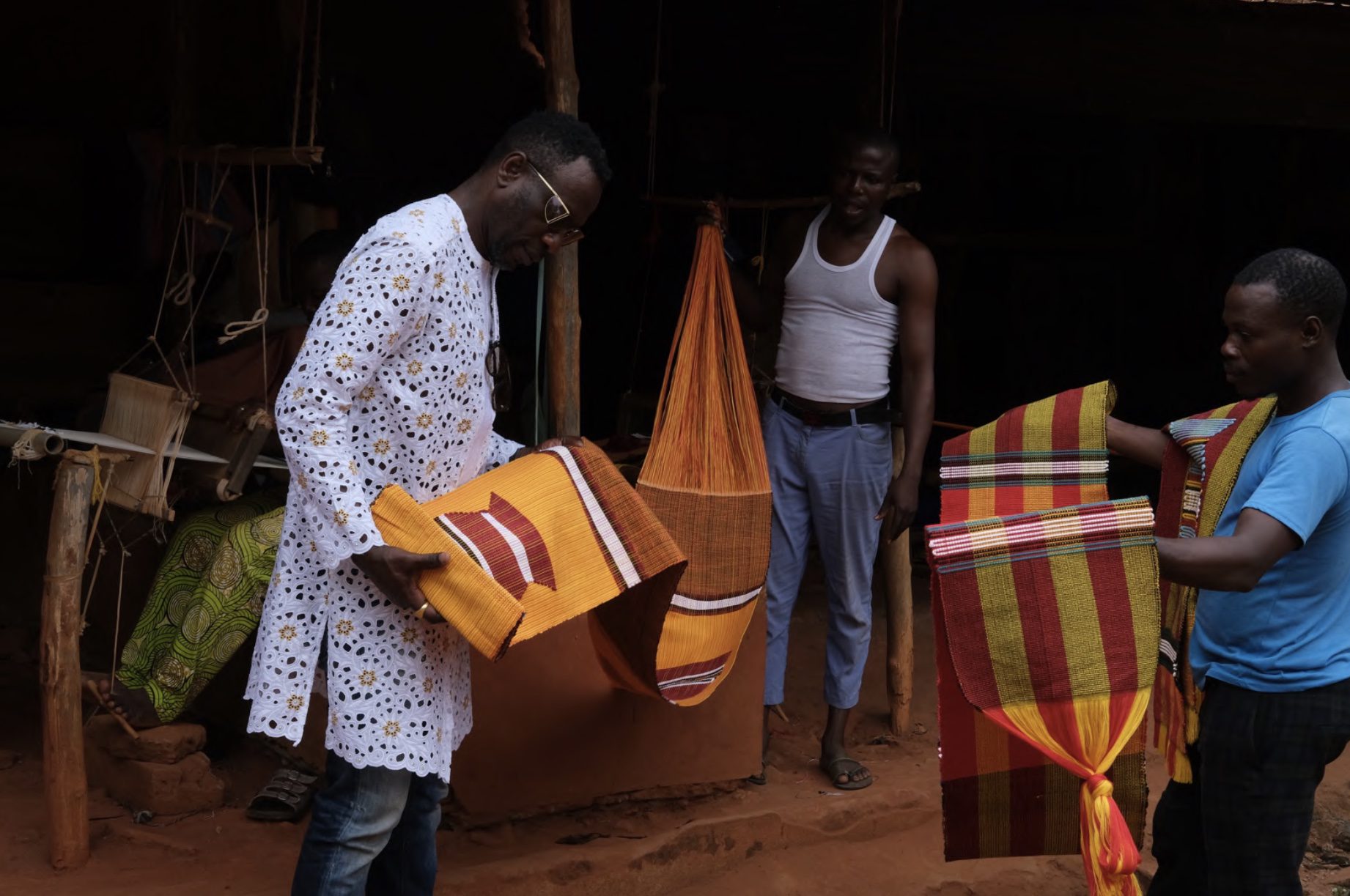
Azu Nwagbogu on a research trip to Benin at the Market at Musee Historique D’Abomey (Historic Museum of Abomey). Courtesy of UGO.
For the first time, Benin has announced its participation. The inaugural exhibition will be co-curated by Azu Nwagbogu, Madame Yassine Lassisi and Franck Houndegla. With the global rise of restitution movements, the curatorial team connects the contemporary art production of Benin to explore the importance and dialogue of decolonization, and reclamation, bringing a debut, fresh perspective to the Venice Biennale in 2024. The exhibition features four Beninoise artists: Romuald Hazoumé, Chloe Quenem, Ishola Akpo, and Moufoli Bello. Each artist will produce unique site-specific work for the exhibition based on the theme, Everything Precious is Fragile.

Wael Shawky. Courtesy Sfeir-Semler Gallery
Wael Shawky will represent Egypt. Born in Alexandria and currently working in between his hometown and Philadelphia, where he received his MFA at the University of Pennsylvania, Shawky works in painting, film and performance to negotiate national imagination and narratives of history through extensive research. He will present a solo project, I Am Hymns of The New Temples, at Museo Palazzo Grimani. Focusing on historical and literal references, Shawky’s practice is recognizable for its storytelling quality that intertwines fable, fact, and fiction.

Tesfaye Urgessa. Photo: Photography by Kameron Cooper. Courtesy Tesfaye Urgessa and Saatchi Yates
In its inaugural exhibition, the Ethiopian Pavilion will present works by Tesfaye Urgessa. The award-winning author and broadcaster Lemn Sissay OBE FRSL has been appointed as the curator for this historical exhibition. Born in 1983 in Addis Ababa, Urgessa’s artistic journey began at the Ale School of Art and Design at Addis Ababa University under the guidance of modern master Tadesse Mesfin. He later continued his studies at the Staatlichen Akademie der Bildenden Künste Stuttgart where he encountered the heritage of German Neo-Expressionism and the London School of Painters. His distinctive artistic language connects Ethiopian iconography with a profound fascination for traditional figurative painting, exploring themes of race and identity politics within domestic settings.
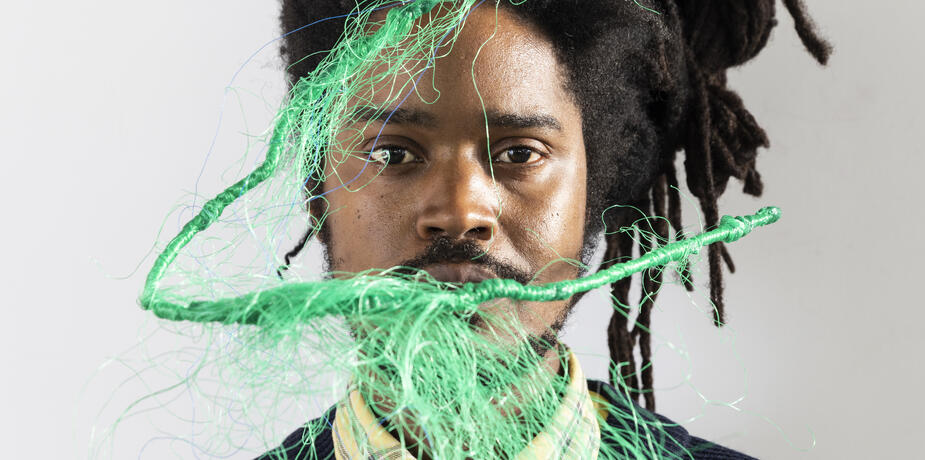
Julien Creuzet. Photo: Viginie Ribaut
France appointed Julien Creuzet as artistic representative at the upcoming biennale. Creuzet lives and works in Paris. A visual artist and poet, he actively intertwines these two practices via amalgams of sculpture, installation and textual intervention that frequently address his own diasporic experience. Inspired by the poetic and philosophical reflections of Aimé Césaire and Édouard Glissant on creolization and migration, Creuzet’s work focuses on the troubled intersection of the history of Martinique and the events of European modernity. The pavilion will be curated by Céline Kopp, the new director of the Grenoble art center Le Magasin, and Cindy Sissokho, curator of the Wellcome Collection in London (Le Monde).
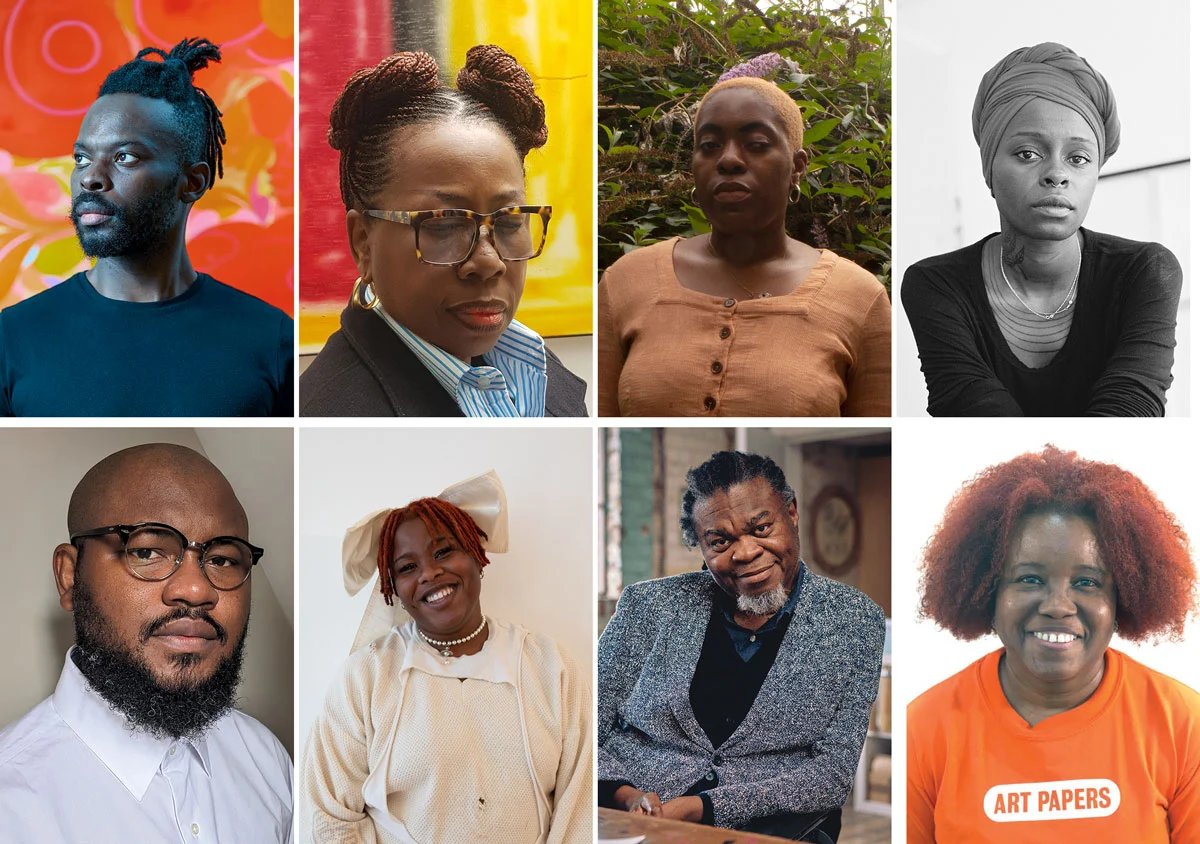
The eight artists of the 2024 Nigerian Pavilion. From left, top row: Tunji Adeniyi-Jones, Ndidi Dike, Onyeka Igwe, and Toyin Ojih Odutola; bottom row: Abraham Oghobase, Precious Okoyomon, Yinka Shonibare, and Fatimah Tuggar. Credits: Adenyi-Jones: On Whit Wall; Igwe: Regine Ullrich; Ojih Odutola: Beth Wilkinson; Shonibare: Tom Jamieson, 2023; All others: Courtesy the artists.
The second participation of the Nigerian Pavilion will be curated by Aindrea Emelife. She selected eight artists to be featured in the group exhibition: Tunji Adeniyi-Jones, Ndidi Dike, Onyeka Igwe, Toyin Ojih Odutola, Abraham Oghobase, Precious Okoyomon, Yinka Shonibare CBE RA, and Fatimah Tuggar.

The Judgement of the White Cube, CATPC, 2023, image Jurgen Lisse.
The Dutch Pavilion will feature the Cercle d’Art des Travailleurs de Plantation Congolaise (CATPC) collective in collaboration with artist Renzo Martens and curator Hicham Khalidi. The collective consists of several artists under which are Matthieu Kasiama Kilapi, Ced’art Tamasala, and Lisette Mbuku Kimpala.They will present new artworks as part of their ongoing commitment for the plantation of Lusanga to be freed, regenerated and transformed back into sacred forests, as well as their commitment to a greater project of spiritual, ethical and economic reckoning. The exhibition will be on display at the Rietveld Pavilion in Venice and simultaneously in the White Cube in Lusanga (DRC).

Mónica de Miranda, Astronauta. Courtesy the artist.
Artist and curator Mónica de Miranda, choreographer Vânia Gala and Sónia Vaz Borges who defines herself as a ‘militant interdisciplinary historian’ will represent Portugal with a collective project titled ‘Greenhouse’. Dividing the exhibition space into four arenas – the garden, the living archive, school, and the assemblies – the project will create a ‘Creole garden’ that engages with discussions of ecology, politics, pedagogy and highlights encounters between artists, the public and various communities.
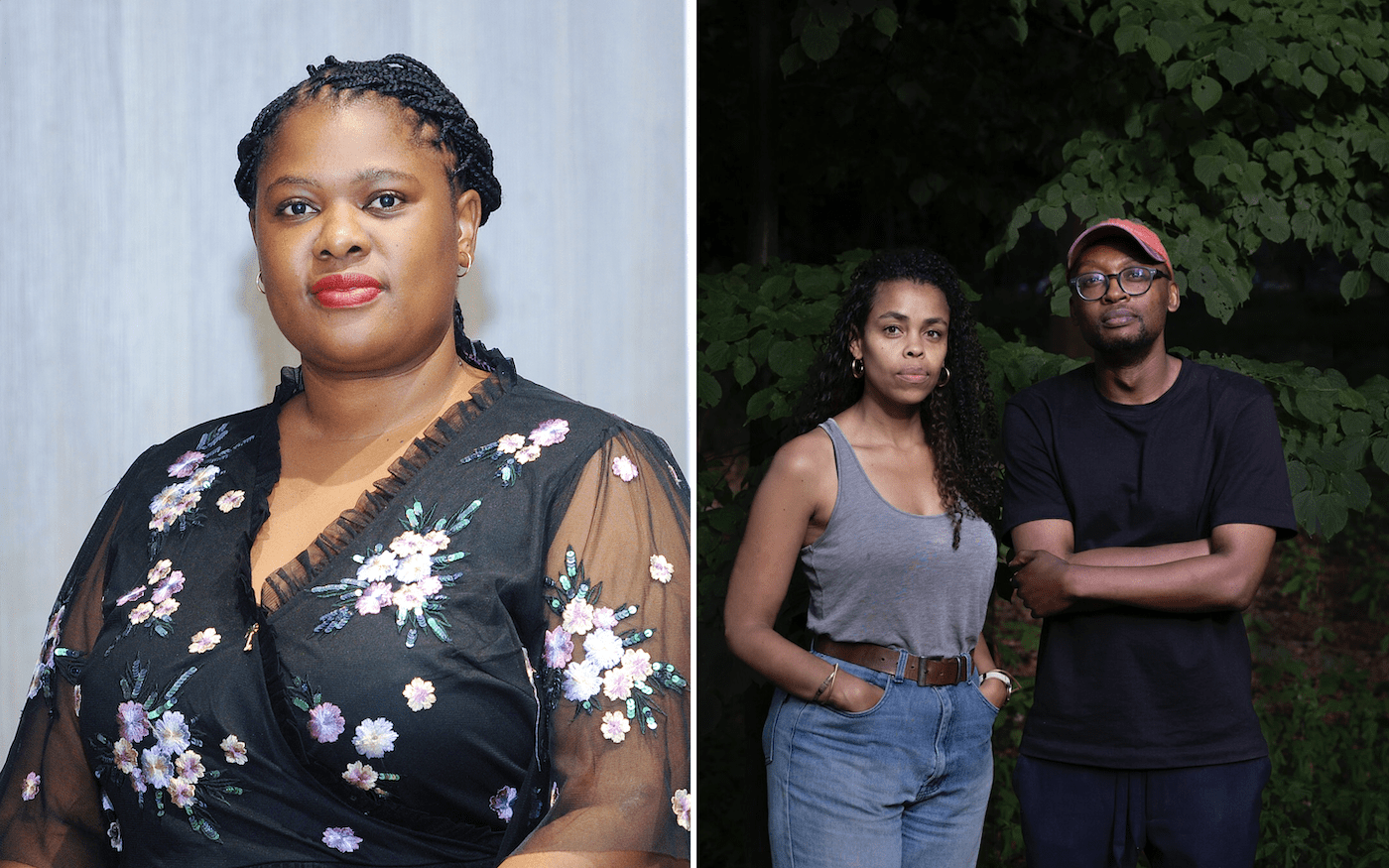
(left) Portia Malatjie; (right) MADEYOULOOK made up of Molemo Moiloa and Nare Mokgotho. Courtesy the artists.
The South African Pavilion is managed by the Institute of Creative Repair, and the exhibition, titled Quiet Ground, is curated by Portia Malatjie. It will feature a newly commissioned sound installation, Dinokana (2024) by the art collective, MADEYOULOOK made up of Molemo Moiloa and Nare Mokgotho.

Clockwise from top left: Haji Chilonga, Happy Robert, Naby, Lute Mwakisopile
Another first appearance has the Pavilion of the United Republic of Tanzania. Hosted in the Factory of Seeing – Carlo Montanaro Archive in Venice, curator Enrico Bittoto selected artists Happy Robert, Naby, Haji Chilonga and Lute Mwakisopile to present their works within the concept of the ‘Other’, exploring the relationship between humans and nature.
60TH VENICE BIENNALE
More Editorial